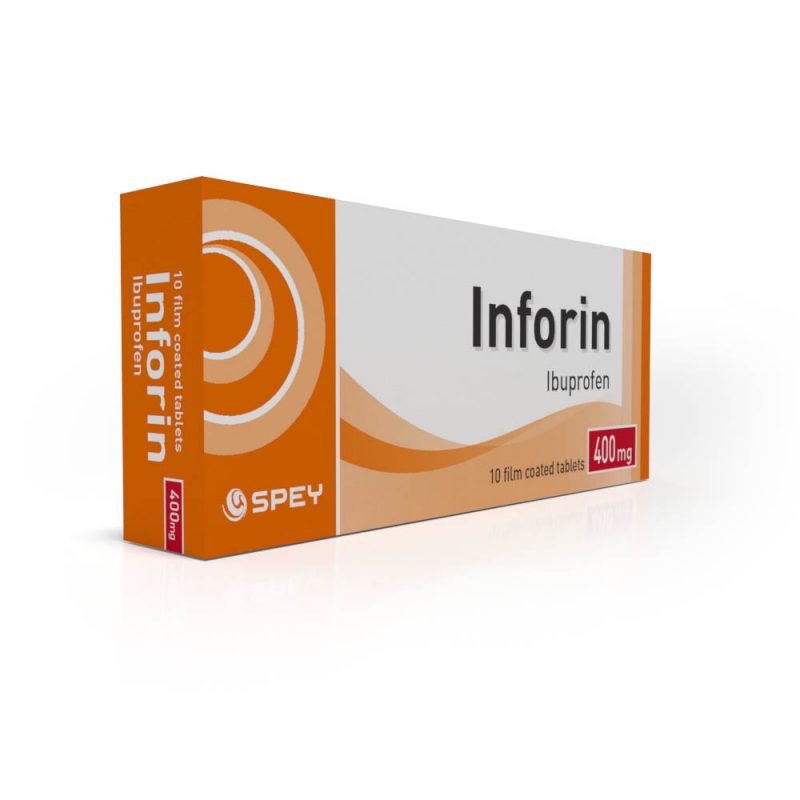
Inforin Tablets
OTC
Download the instruction
Inforin is a propionic acid derivative with analgesic, anti-inflammatory and anti-pyretic activity.
Composition
Each film coated tablet contains:
Active substance: Ibuprofen – 400 mg
Excipients: lactose monohydrate, maize starch, povidone, cellulose microcrystalline, dimeticone, crosscarmellose sodium, silica colloidal anhydrous, talc, hypromellose, macrogol 6000, titanium dioxide, color Azorubine 85E 122, color Coch. Rot 80E 124.
Indications for use
Inforin is indicated for its analgesic and anti-inflammatory effects in the treatment of rheumatoid arthritis (including juvenile rheumatoid arthritis or Still’s disease), ankylosing spondylitis, osteoarthritis and other non-rheumatoid (seronegative) arthropathies.
In the treatment of non-articular rheumatic conditions, Inforin is indicated in periarticular conditions such as frozen shoulder (capsulitis), bursitis, tendonitis, tenosynovitis and low back pain; Inforin can also be used in soft tissue injuries such as sprains and strains.
Inforin is also indicated for its analgesic effect in the relief of mild to moderate pain such as dysmenorrhoea, dental and post-operative pain and for symptomatic relief of headache, including migraine headache.
Mode of application
Undesirable effects may be minimised by using the lowest effective dose for the shortest duration necessary to control symptoms.
Adults: The recommended dosage of Ibuprofen is 1200-1800 mg daily in divided doses. Some patients can be maintained on 600-1200 mg daily. In severe or acute conditions, it can be advantageous to increase the dosage until the acute phase is brought under control, provided that the total daily dose does not exceed 2400 mg in divided doses.
Children: The daily dosage of Ibuprofen is 20 mg/kg of body weight in divided doses.
In Juvenile Rheumatoid Arthritis, up to 40 mg/kg of body weight daily in divided doses may be taken.
Not recommended for children weighing less than 7 kg.
Elderly: The elderly are at increased risk of serious consequences of adverse reactions. If an NSAID is considered necessary, the lowest effective dose should be used and for the shortest possible duration. The patient should be monitored regularly for GI bleeding during NSAID therapy. If renal or hepatic function is impaired, dosage should be assessed individually.
For oral administration. To be taken preferably with or after food.